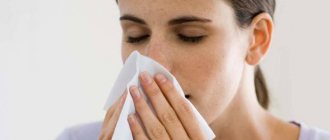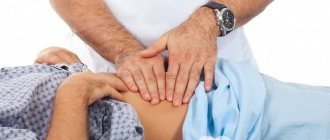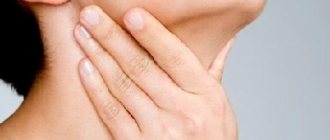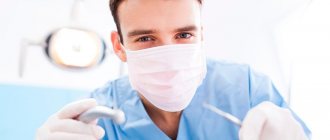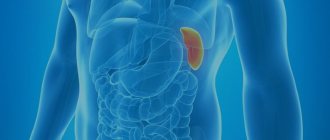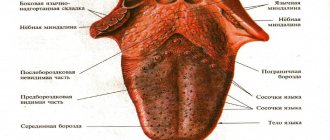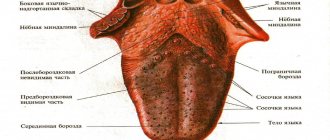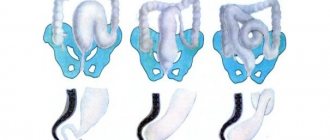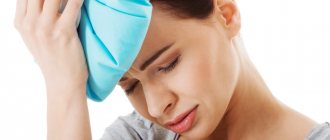Bruxism in adults is a condition in which the patient grinds their teeth while sleeping. This occurs due to a sudden change in the tone of the masticatory muscles. Muscle spasm leads to the closing of the jaws and their uncontrolled movement, friction of the dentition against each other, which causes a characteristic creaking.
It is important to understand that in many cases the reason for this phenomenon does not lie in pathologies of the dental system: changes in muscle tone can appear due to diseases and certain functional conditions of the nervous system. However, in order to get rid of bruxism, it is important to understand exactly why an adult grinds his teeth.
Possible causes of bruxism
Not only dentists pay attention to the problem of teeth grinding at night: neurologists say that this symptom may be a signal of problems with the nervous system.
And if involuntary closing of the jaws while awake is most often associated with neuropsychic stress, then night bruxism can be observed for several reasons:
- bad habits - for example, a person chews pens, etc. It is worth noting that this symptom may indirectly indicate dysfunction of the nervous system;
- bite defects - a violation of the distribution of the chewing load can lead to increased tone of the masticatory muscles;
- poor-quality filling - overestimation of the filling, crown, prosthesis, which prevents normal occlusion (closing of the jaws);
- deficiency of vitamins, microelements, mineral metabolism disorders affecting muscle contractility;
- psycho-emotional tension, stress, depression, chronic fatigue (including constant neuromuscular tension associated with the specifics of work);
- love of substances that stimulate the nervous system - caffeine, alcohol, nicotine, some medications;
- epiactivity - predisposition to muscle spasms, prerequisites for epilepsy;
- anatomical features of the development of the temporomandibular joint, trauma;
- withdrawal syndrome in the treatment of addiction to cigarettes and alcohol;
- sleep disorders - apnea, nightmares, intermittent, shallow sleep, disturbances in the rhythm of sleep and wakefulness, frequent awakenings, etc.;
- hereditary factor.
The causes of bruxism in adults can be combined. It is worth noting that for a long time there was an opinion that this phenomenon was associated with the presence of parasites. However, no medical justification for this has yet been found - the presence of helminths does not provoke teeth grinding at night.
A doctor will help you find out the exact cause in a particular case, and in some cases more than one - you will need to consult both a dentist and a neurologist. It is important to contact a specialist in a timely manner to prevent complications.
Where to treat
The NEARMEDIC network of clinics is a multidisciplinary clinic that allows you to receive services from specialists in all fields of medicine.
The first important step is to make an appointment with a specialist. Choose a clinic that is conveniently located, determine the best time to visit for yourself and make an appointment for a consultation. It is the examination that will help identify the disease and promptly begin to search for the causes, and then to treatment.
It has been established that this disease may seem harmless only at first glance, but it is known that it is impossible to cure it on its own. Even in clinics, it takes time to search and discover the exact causes of bruxism. In the absence of specialized assistance, the situation can lead to disastrous results.
The NEARMEDIC network of clinics makes it possible to thoroughly examine the oral cavity and the entire body in order to know what diseases are present and what should be treated. If necessary, specialists convene consultations to develop individual effective treatment programs.
If treatment is determined to include psychotherapy sessions, massages or physiotherapeutic procedures, all this is carried out at the clinic at a time convenient for you.
Symptoms and consequences of bruxism
Regardless of why an adult grinds their teeth in their sleep, this phenomenon may not have the best effect on the condition of their teeth and health in general. The main symptom of this disease is a characteristic clicking, knocking of teeth against each other or typical grinding. The duration of such an attack can range from several seconds to minutes. This symptom is complemented by other functional changes: changes in breathing, heart rate, tremors of the limbs, etc. Long-term consequences of the disease include:
- cracks, chips, abrasion of enamel, associated hypersensitivity (sensitivity to temperatures: hot and cold food, drinks, and acids);
- bite defects;
- inflammation of the mucous membranes, gums - gingivitis, stomatitis, periodontitis;
- gum loss;
- headaches, pain in the facial muscles, worse in the morning;
- sleep disturbances leading to increased fatigue, lack of proper rest and recovery;
- pain and dysfunction of the temporomandibular joint;
- pain in the maxillary sinuses, ears;
- dizziness;
- decreased activity, depressed mood;
- loosening, loss of teeth due to structural changes in the tissues that hold them in the thickness of the jaw.
It is worth noting that increased abrasion of enamel is a consequence that can lead to many complications. Weakened enamel with cracks and chips is susceptible to destruction and caries - food debris and soft plaque accumulate in microdamages, which is a favorable environment for the proliferation of bacteria. A decrease in the height of the crowns of the teeth can cause the formation of a malocclusion already in adulthood and further aggravate the problem - the circle closes. The sharp edges of the enamel, even with very small chips, can injure the mucous membranes of the lips, cheeks, and tongue, provoking inflammatory processes.
Therefore, if an adult grinds their teeth in their sleep for a long time, it is important to consult a doctor to solve the problem. Otherwise, this will not only affect his quality of life, but may also become an obstacle to the installation of orthodontic and orthopedic structures: a patient with bruxism will most likely be denied the installation of implants, veneers, or lumineers. And due to the fact that bruxism significantly affects the appearance of teeth, such measures may be required in the future.
Main stages of treatment
Step 1. Preparation for the procedure
A doctor, for example, an implant surgeon or an orthopedist, may refer you to the botulinum therapy procedure for comprehensive preparation before installing implants or dentures. But you can also contact your dentist yourself with complaints about the symptoms of dental bruxism. On the recommendation of a doctor, after consultation and diagnosis, you can begin the injection course.
No complicated preparation is required. 2-3 days before the procedure, it is advisable to eliminate alcohol and reduce the consumption of tea, coffee and energy drinks, as well as stop taking blood thinning medications and antibiotics.
Experienced doctors who follow safety precautions! Our specialists have undergone appropriate training, are certified and accurately calculate the dosage of the drug. We carry out treatment carefully, safely and with results!
Sign up
Step 2. Administration of the drug
The procedure itself takes on average 20 minutes. The doctor conducts a follow-up examination and marks points for drug administration.
The doctor takes the ampoule out of the refrigerator and opens the disposable syringe with the medicine in front of you - this way you will make sure that the storage conditions and sterility of the drug are observed. How many units of Botox are needed for bruxism? The specialist will calculate the dose individually, based on the severity of the symptoms, and divide it into 3-4 parts - that is, you will be given several small injections in different areas of the muscle. For injections, disposable sterile syringes with thin needles are used, so the procedure is almost painless. But for greater comfort, the injection site can be numbed.
Step 3. Rehabilitation period
The drug begins to act immediately, but gains maximum strength gradually - over about 10-14 days, during which the spasmodic area completely relaxes. At this time, it is undesirable to overheat and overcool the problem area: that is, you will have to limit physical activity, trips to the bathhouse and sauna, as well as to the pool.
It is also important in the first days to touch your face as little as possible and not to steam or massage the injection sites.
The effect of the drug lasts up to 7 months, but may weaken faster depending on individual characteristics. Your doctor will tell you at your follow-up appointment whether you need a repeat course.
Diagnostic measures
You should start the examination with a dentist. He will conduct an examination, evaluate the bite and occlusion (closing of teeth), the condition of dental structures, if any, conduct a survey and find out the facts preceding the onset of bruxism.
Electromyography is a method for determining the dynamics of the masticatory muscles at rest and during contraction. It is widely used in diagnosing the causes of bruxism in adults and allows us to understand the nature of the pathology. With its help, myofascial pain syndrome of the face is identified, as well as poor-quality dental procedures performed earlier: errors during restoration, installation of structures.
If the problem is not in the dental plane, the patient is referred for a consultation with a neurologist.
In general, methods for diagnosing the causes of bruxism can include a whole range of measures: radiography of the jaws, temporomandibular joints, EEG (directed by a neurologist), laboratory tests, etc.
One of the important stages in identifying the source of the problem is psychotherapeutic diagnosis. The fact is that bruxism is also a psychosomatic disease, so an experienced specialist can significantly help in diagnosing the causes by identifying the characteristics of the patient’s reaction to stress, the specifics of behavior and habits in the waking state.
The difficulty of diagnosis lies in the fact that when an adult grinds his teeth, he may simply not know about it: as a rule, this fact is reported to him by his closest relatives living with him. Otherwise, he may not suspect the presence of the disease for a long time and come to the dentist with consequences: for example, a complaint about increased sensitivity of the teeth as a result of abrasion of the enamel. However, if you know about this feature, you should not put off visiting a specialist. The sooner the causes are identified, the sooner treatment can begin and complications can be prevented.
Diagnostic procedures
The primary signs of bruxism are determined by the description of symptoms by the patient or people living with him. If there are none, the dentist can independently detect secondary symptoms when examining the oral cavity of a patient who comes for an appointment. An accurate diagnosis is made using special mouthguards called brux checkers. They are made individually based on an impression taken from the dentition. The system is installed overnight to assess the presence of bruxism symptoms. The next morning, the diagnostic model is submitted to the clinic for examination, during which the attending physician sees which teeth bear the greatest pressure and friction.
Polysomnography or electromyography sessions are often performed to determine the diagnosis. The fact of the presence of the disease, in fact, is not difficult to establish. It is much more difficult to determine the reasons for its occurrence in each specific case. And this is necessary in order to treat not the symptoms, but the disease that causes them. Any measures with teeth are pointless and give a short-term effect if the underlying disorder is not eliminated. Considering the various types of bruxism, specialists from various fields of medicine are invited for consultation to establish the causes.
Treatment methods for bruxism in adults
The causes and treatment of bruxism in adults have their own specifics than in young patients. Determining the source of nighttime teeth grinding can take quite a long time. This is especially true for cases that require a collegial approach and the involvement of doctors from other specialties. Nevertheless, it is necessary to protect teeth from the possible consequences of constant mechanical impact.
This is done using special devices:
- kapp;
- trainers;
- tires that control myodynamic balance.
Today, thermally modulated night splints are widely used; with their help, you can protect teeth mechanically and also relieve stress on the joints. There are also splints for 24-hour wear; they are invisible to others because they are placed deep in the oral cavity. Repositioning splints allow you to change the position of the joints and eliminate the disease formed as a result of TMJ pathology.
Mouthguards are made individually, according to the parameters of the patient’s jaws. They do not correct the bite - they only mechanically protect the tooth enamel from abrasion. In most cases, it is advisable to carry out additional remineralizing therapy, which helps strengthen the enamel and prevent its cracking and destruction. The specialist will also recommend toothpaste with a high mineral content.
If the reasons that an adult grinds his teeth in his sleep are malocclusions, oversized fillings and constructions, TMJ diseases, the dentist will prescribe treatment and recommend a method to eliminate the main problem. This could be grinding fillings, replacing crowns or bridges with suitable ones, correcting a bite with a braces system, etc.
If the problem is in the condition and functions of the nervous system, a neurologist will evaluate its condition and prescribe medications with a sedative effect that normalizes the contractile activity of the muscles. In the most severe cases, Botox injections are used to temporarily block the transmission of nerve impulses to the muscles and eliminate the unpleasant symptom.
You may also need to consult a general practitioner. If the source of the problem is a deficiency of vitamins and microelements, he will prescribe vitamin and mineral complexes to replenish the body’s resources. As a rule, preparations containing calcium, magnesium, and B vitamins are used.
Choosing a sleep guard for bruxism: types and price
Firstly, there are universal and individual options: finished products are produced in factories using standard templates, and custom-made mouth guards are made exactly to your measurements.
Also, as we mentioned, mouthguards are not only night guards. The vast majority of patients suffer from teeth grinding during sleep, but a number of people cannot control jaw clenching during the day - for such cases, there are options for daytime overlays that are more invisible and do not affect pronunciation.
A mouthguard for teeth against bruxism, especially a night guard, can be bought at a pharmacy (either in Moscow or in any other city). It costs about two to three times less than a custom-made one. The quality depends on the manufacturer, and universal options have limitations in size and shape, so they simply may not fit the dentition. But the most important limitation, which patients often forget about, is that a ready-made onlay should be purchased on the recommendation of a dentist, and not self-medicated. Alas, without diagnosing and searching for the causes of spasm of the masticatory muscles, a ready-made mouth guard will do more harm than good.
Therefore, it is better if the mouth guard is made individually - based on a cast of your jaws. Individual mouthguards for bruxism, made for sleep, take into account anatomical features to the smallest detail and do not overload the teeth. And if you need to wear the veneer during the day, then it should match the shape of the teeth so that it is truly invisible when communicating. You can order such a mouthguard for bruxism in dentistry by contacting your doctor about this problem.
The doctor will also give recommendations on how long a day it is best to wear a mouth guard, how to care for it, and when the product should be replaced.
Doctor's recommendations
The following methods of relieving the condition can serve as an addition to the main measure or course of treatment:
- compresses, special exercises (simple, using special balls);
- massage that normalizes muscle tone;
- balanced diet;
- refusal of stimulants - coffee, tobacco, alcohol, energy drinks;
- ventilate the room before going to bed;
- relaxing baths - with pine extracts, lavender, etc.;
- moderate loads on the chewing muscles in the evening;
- Mandatory - normalization of workload, daily routine;
- psychotherapy, mastering skills to cope with stress;
- rest, full vacation if possible - for those whose professional activities are associated with neuropsychic stress.
Adults grind their teeth at night relatively less often, which is associated with the general maturity of the nervous system. However, according to statistics, from 5 to 15% of the entire adult population experience this disease. It can manifest itself episodically - during periods of increased emotional, physical stress, stress, or be observed constantly, significantly worsening the quality of life. An integrated approach allows not only to prevent tooth decay, but also to stop the main causes of bruxism; the main condition for recovery is timely seeking help from specialists.

